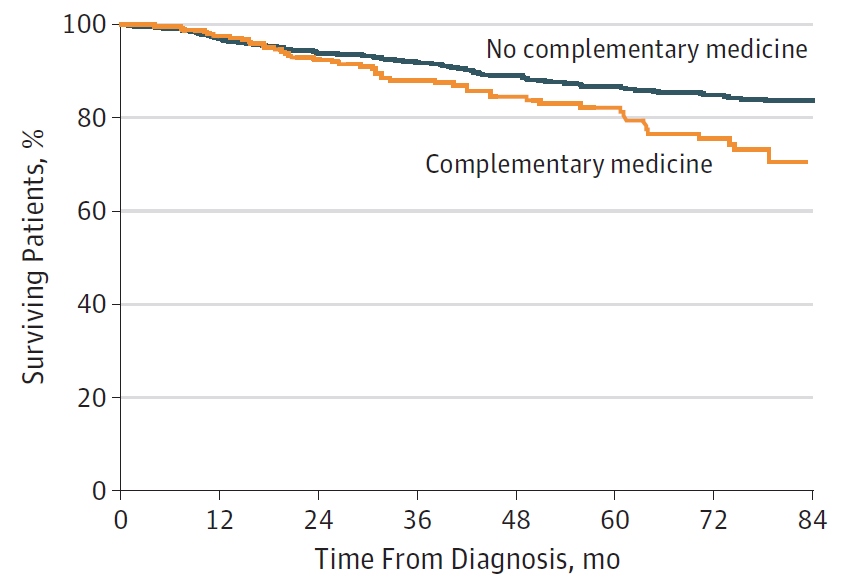The Real Problem with Goop: It's Deeper than You Think
/Herbs and supplements are unregulated, true, and stories of adverse effects abound. But the real problem with alternative medicine is that its business model depends on sowing mistrust in the scientific method itself.
This week, we’re taking a break from our usually scheduled programming to talk about Goop.
Goop, Gwyneth Paltrow’s lifestyle brand is coming to your living room via Netflix with “The Goop Lab” – where Gwyneth and her crackerjack team look at various wellness topics.
Now, I want to make it clear, that I like Gwyneth Paltrow. If Gwyneth wants to invite me to the Oscar’s, I’m in. Party at her Brentwood Estate? Sign me up.
No, I’m not giving you a link.
But Goop… see Goop bothers me a bit. Here’s why. Goop is not your typical lifestyle brand hawking makeup and 10 tips to make sex outstanding. I mean, it is. But a huge part of its business model relies in selling products based on dubious health claims - you may remember the kerfuffle that resulted from Goop’s “jade vaginal eggs” marketed to improve sexual functioning.
Currently, the site sells a variety of herbal remedies in very classy, medical-appearing packaging. Here is Goop’s “perfect attendance” supplement which purports to offer “immune support”. Note the careful avoidance of terms that would imply it is intended to treat, cure, or prevent any disease which would subject the substance to FDA scrutiny.
Goop is part of a nearly 200 billion dollar complementary and alternative medicine market.
And, honestly, the size of that market is an indictment against the conventional medical industry. For many conditions – I’m looking at you low back pain – conventional therapy is limited, costly, or with significant side effects. Doctors don’t have enough time to really get to know their patients, to understand what’s going on beneath the surface level. CAM providers offer more than weird lotions and energy manipulation. They offer a sympathetic ear, hope, and understanding.
And yes – some patients heed that siren song of CAM – side-effect free curative treatments – and forgo conventional therapy. This is a problem.
A JAMA Oncology study matched 258 cancer patients who used CAM to 1032 who did not. 7% of the CAM group refused surgery, 34% refused chemotherapy, and 53% refused radiotherapy. Perhaps not surprisingly, five-year survival was significantly lower in the CAM group.
So yes, there are some people who avoid necessary care because they pursue a care modality that appears safer to them and they pay the price for it.
There are other adverse effects of CAM therapies.
A New England Journal of Medicine study examined ER records to determine that about 23,000 ED visits per year are due to adverse effects of supplements – often these were due to the cardiovascular effects of weight-loss or energy-products.
But people end up in the ED all the time for problems with conventional medications too.
In reality, most people integrate herbs and supplements into the rest of their medical routine without adverse effects.
Many patients don’t tell their doctors about their uses of herbs and supplements, which is a problem that may increase the risk of drug interactions. Of course, given that a study evaluating supplements at large chain stores found 4 out of 5 didn’t contain the product they claimed to, even if a patient tells us what they think they’re taking, it may not help.
Better regulation and oversight would go a long way to make supplements safer, but honestly, this is still not really what bothers me about companies that sell CAM, companies like Goop.
It’s something a bit deeper. It’s that their business model depends on sowing doubt about the very scientific method upon which we’ve built modern medicine. They substitute anecdote for analysis. They appeal to the use of a product throughout history as adequate evidence of its safety and efficacy.
I am thankful we’ve moved away from this approach, lest the lead tableware the Romans preferred still be found at our dinner tables.
Doctors like me are, in part, to blame for the rise of companies like Goop. We’ve dropped the ball, and left the emotional and psychological needs of our patients at the door in service of our need to see 50 patients a day to make ends meet. In the vacuum we’ve created, all sorts of people, from the true believers to cynical hucksters will step in.
But even in the best light, the CAM-selling companies need to bear some blame. They do better when patients trust their doctors less. They embrace the anti-expertise, anti-intellectual milieu we’ve found ourselves in and paint conventional docs like me as pharmaceutical company shills at best, sociopathic mass murderers at worst.
Still, it remains my firm belief that if we can recapture the spirit of community with our patients, if we can spend more time looking at them and less at a computer screen, more time listening and less time billing, they will come back to us if for no other reason than, well, our medicines work.
This commentary first appeared on medscape.com.


